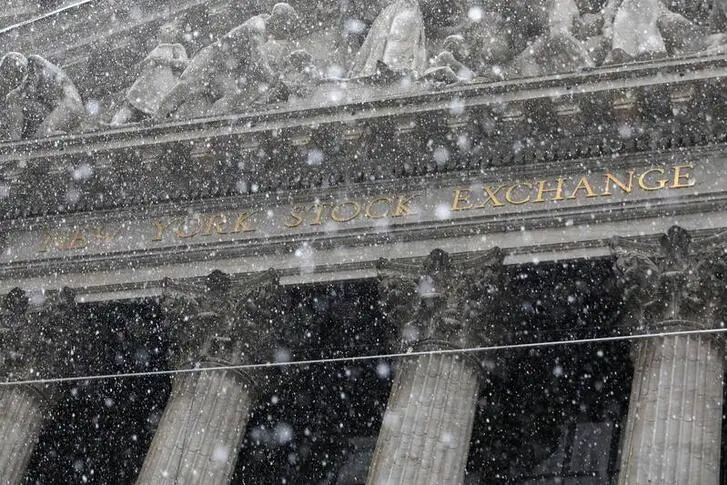PHOTO
LONDON- World shares were range bound on Monday as markets digested Friday's disappointing U.S. jobs report and a global tax deal between the G7 group of countries, while also looking ahead to inflation data due this week.
Investors were wary about how shares of major tech firms would react to the G7's agreement on a minimum global corporate tax rate of at least 15%, although securing approval from the whole G20 could be a tall order.
So far, the reaction was muted with Nasdaq futures down 0.4% and S&P 500 futures down 0.2%.
"I would assume that it (the tax deal) is not helping the market in the sense that these Internet giants are going to be taxed more....it has an impact on sentiment in equity markets, but the reality is it has already been priced in," said Sebastien Galy, senior macro strategist at Nordea Asset Management.
"So even though equity markets in the U.S. are under pressure on the futures side, I'd expect it not to last till the end of the day."
European shares opened lower, easing from all-time highs with commodity shares leading declines as sentiment soured after weaker-than-expected China trade data and worries about inflation.
MSCI's All-Country World index, which tracks shares across 49 countries, traded just below record highs and was flat on the day after the start of European trading.
MSCI's broadest index of Asia-Pacific shares outside Japan slipped 0.05% and risked a fourth session of losses. Japan's Nikkei edged up 0.3% and touched its highest in almost a month.
Taiwan stocks lost 0.4% as a spike in COVID-19 cases hit three tech companies in northern Taiwan, including chip packager King Yuan Electronics.
Chinese blue chips were off 0.1%, as data showed both exports and imports up sharply in May amid a global revival in trade and strong demand for commodities.
China's imports grew at their fastest pace in 10 years, although export growth missed expectations, customs data showed.
While the 559,000 rise in May U.S. jobs missed forecasts it was still a relief after April's shockingly weak report. The jobless rate at 5.8% showed there was a long way to go to reach the Federal Reserve's goal of full employment.
"The data was perfect for a goldilocks type outlook for risk: not too hot to bring in fears of a faster Fed taper, and not too cold to worry about the outlook for the recovery," said NatWest Markets strategist John Briggs.
"This caused a weaker USD, better stocks, reinforced the earlier bid in commodities, and boosted emerging markets."
Attention will now turn to the U.S. consumer price report on Thursday where the risk is of another high number, though the Fed still argues the spike is transitory.
Briggs suspected Fed officials might open the door to talking about tapering at the June policy meeting, with the start coming in early 2022 and a rate hike not until 2024.
Investors are also watching the tussle over U.S. President Joe Biden's proposed $1.7 trillion infrastructure plan with the White House rejecting the latest Republican offer.
The European Central Bank will hold its policy meeting on Thursday and is widely expected to maintain its stimulus measures with tapering a distant prospect.
Yields on U.S. 10-year notes were a fraction higher at 1.58%, after diving 7 basis points on Friday and back to the bottom of the trading range of the last three months.
That drop, combined with an improvement in risk appetite, put the dollar on the defensive. It was last at 90.202 against a basket of currencies, having slipped from a top of 90.629 on Friday.
The euro was holding at $1.215, after bouncing from a three-week trough of $1.2102 on Friday, while the dollar was back at 109.52 yen from a peak of 110.33.
The pullback in the dollar helped gold steady at $1,885 an ounce , up from a low of $1,855 on Friday.
Oil prices ran into profit-taking after Brent topped $72 a barrel for the first time since 2019 last week as OPEC+ supply discipline and recovering demand countered concerns about a patchy global COVID-19 vaccination rollout.
Brent slipped 0.4% to $71.61 a barrel, while U.S. crude eased 0.4% to $69.31.
(Reporting by Ritvik Carvalho; additional reporting by Wayne Cole in Sydney; editing by Jason Neely) ((Ritvik.Carvalho@thomsonreuters.com; +44 2075429406; Reuters Messaging: ritvik.carvalho.thomsonreuters@reuters.net; Twitter @ritvikcarvalho))





















